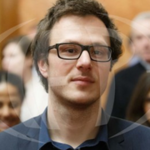Group 6
Comparative Group 6: The role of Adult Education organisations and institutions in professionalisation of Adult Educators
Adult education organisations, professionalisation, professional development
International intergovernmental organisations as well as the adult education research community are emphasising the importance of well-qualified personnel working in the field of adult education. However, although nowadays students can study adult education mostly at master level university studies, only a small part of personnel working in the adult education have studied adult education. Moreover, they are coming from highly diverse academic disciplines.
The range of professionals working in the field of adult education is wide and diverse—depending on the sector and the institution in which they work, for example, adult educators working in folk high schools, commercial institutes, business companies, higher education institutions, parties, unions, (political) foundations and the church—, as adult education is linked with a country’s social structure, its socio-economic, cultural and political traditions, low regulation of the adult education system and different understandings of adult education.
In knowledge based society, adult education organisations and institutions integrated into the state, market and third sector contexts, are becoming important actors in the development of professionalism, as these organisations offer different opportunities for learning, continuing professional development and professional network development. Therefore, this comparative group will explore different opportunities adult education organisations and institutions offer for the professionalization—further professional education and training—of personnel working in the field of adult education.
Comparative research question
1. What are the main organisations and institutions in the field of adult education in your country?
2. What kind of opportunities these organisations and institutions offer for further professional education and training—knowledge and skills development—of personnel working in organisations and institutions for adult education in your country?
3. Which international, national or regional policies support professionalization of adult educators in your country?
Context of comparison
Institutions and organisations for adult education of countries to which students and practitioners belong will represent the main context (cases) of comparison. However, interdependencies of institutions and organisations with (a) international policies (for example, “Curriculum globALE” (2013), “Key competences for adult learning professionals” (2010)) and (b) national or regional regulations and policies will be explored as well.
Role of Practitioners
Practitioners should focus on examples (programs, learning activities, network cooperation) from their own institutions, or organisation with which they cooperate, and share their practices about continuing professional development. They could be leaded by the following question: Which knowledge and skills you gained (or not) while working in adult education institution(s) and how are these influencing your professional development as adult educator?
Categories of comparison
(selection for the transnational essay is based on participants research interests)
1. Types of organisations and institutions: which are the main institutions and organisations—i.e. adult education institutes, associations, adult education centres, folk high schools, vocational/continuing education centres, schools, third age universities, NGOs etc.—in the field of adult education in a given country?
2. State of professionalization: which international, national or regional policies and regulations in a given country supports professional education and training of adult educators?
3. Institutionalized career paths: which strategies, programmes and ways of becoming adult educator are offered by institutions and organisation for adult education in a given country?
References
Egetenmeyer, R., Breitschwerdt, L., & Lechner, R. (2019). From ‘traditional professions’ to ‘new professionalism’: A multi-level perspective for analysing professionalisation in adult and continuing education. Journal of Adult and Continuing Education, 25(1), 7–24.
Jütte, W., & Lattke, S. (2014). International and comparative perspectives in the field of professionalisation. In: S. Lattke & W. Jütte (Eds.), Professionalisation of adult educators: International and comparative perspectives (pp. 7–21). Frankfurt am Main: Peter Lang.
Jütte, W., Nicoll, K., & Salling Olesen, H. (2011). Editorial: Professionalisation – The struggle within. European Journal for Research on the Education and Learning of Adults, 2(1), 7–20.

Prof. Borut Mikulec, University of Ljubljana, Slovenia
Dr. Borut Mikulec is assistant professor of adult and continuing education at the Department of Educational Sciences at the University of Ljubljana. His research areas include the role of transnational organisations in education policy, international and comparative adult education, vocational education and training, recognition of non-formal and informal learning and the policy of lifelong learning.

Co-Moderation: Jennifer Danquah, University of Würzburg, Germany
From October 2019, Jennifer Danquah will be a research assistant at the Professorship of Adult and Continuing Education at the Julius-Maximilian-University of Würzburg. Her research interests relate to intercultural dialogue, the notion of space and intersectional structures. In addition, Jennifer’s expertise lies in professionalism and professionalization in the field of Adult Education.



